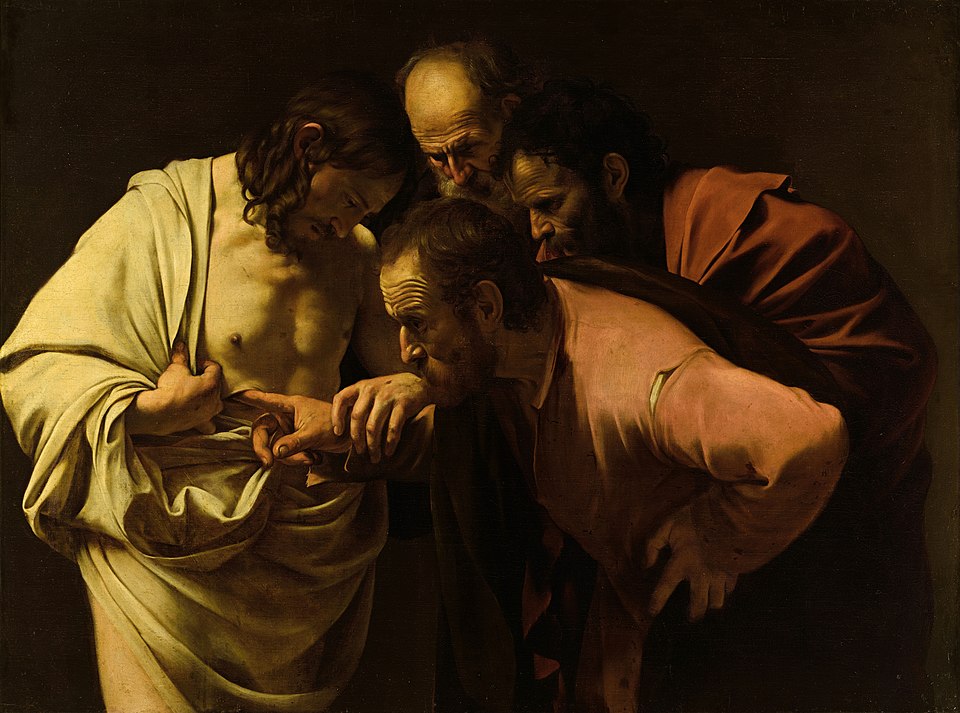Weekly Word: April 27, 2025

The Sunday after Easter is sometimes referred to as “Low Sunday.” Church attendance, after such a busy week of services and activities leading into Easter, normally drops rather dramatically. But it’s also referred to as “Thomas Sunday,” because the gospel lesson is always the episode from the Gospel of John that takes place on the Sunday after Jesus is raised from the dead. It’s one of the very few days when that are identified so precisely on the calendar in the stories of Jesus’s life. And it’s the story about Thomas, and his skepticism about Jesus coming to life again.
Thomas has come down through history with the nickname “Doubting Thomas.” And that’s not quite right. It’s one reason that there are so few churches named after Thomas in the Episcopal Church. Yes, there are a few, but they are just that; few, and far between.
But rather than focus on his supposed doubts, I think we miss the real point of the story. Thomas, quite correctly, points out that a story about resurrection from the dead is quite a big deal to accept. And he needs more than just someone telling him it’s true to buy into it.
I’ve preached for years on the fact that when the moment actually arrives that Jesus appears to him, Thomas does not actually reach out to touch Jesus, he accepts the evidence of his own eyes, and proclaims Jesus as “My Lord and my God.” It’s a prayer that I utter every time I receive communion. The evidence of my own life, in the moment of making my communion, is clear. Failure and Death are not the last word, but when Jesus shows up, our duty is to accept, proclaim, and joyfully receive him into our lives.
And what happens then to Thomas? Legend has it that he moves East from Palestine, taking the Gospel to Persia, and even into India. We don’t have good historical records that he did this, but someone clearly did. For quite soon, there is a growing Christian Church in India. And they think that the apostle Thomas is the one who brought them the Gospel. In fact, they refer to themselves as the “Mar Thoma Church.” The Sons of Thomas.
This ancient Christian Church has come to America, and there are multiple congregations in Dallas, and even one in Lubbock! Any place where people from south Asia have made their home, you might find a Mar Thoma congregation. In the 1600’s and 1700’s, when their church was in crisis, it was the Church of England that came to their aid. A fact that they have never forgotten. Not only are we in full communion with this church, but we are seen as a type of elder brother to these Christians.
The whole point that I’m trying to get to, is that from Thomas’s moment of skepticism, has come a profound and growing faith. In India, in my own heart, and in the lives of millions of people. What might seem like a moment of weakness, has grown. What might seem like a defeat has turned into glorious triumph.
Fr. David
Photo credit: The Incredulity of Saint Thomas by Caravaggio, c. 1602. Source: https://en.wikipedia.org/wiki/Doubting_Thomas#/media/File:Der_ungl%C3%A4ubige_Thomas_-_Michelangelo_Merisi,_named_Caravaggio.jpg
